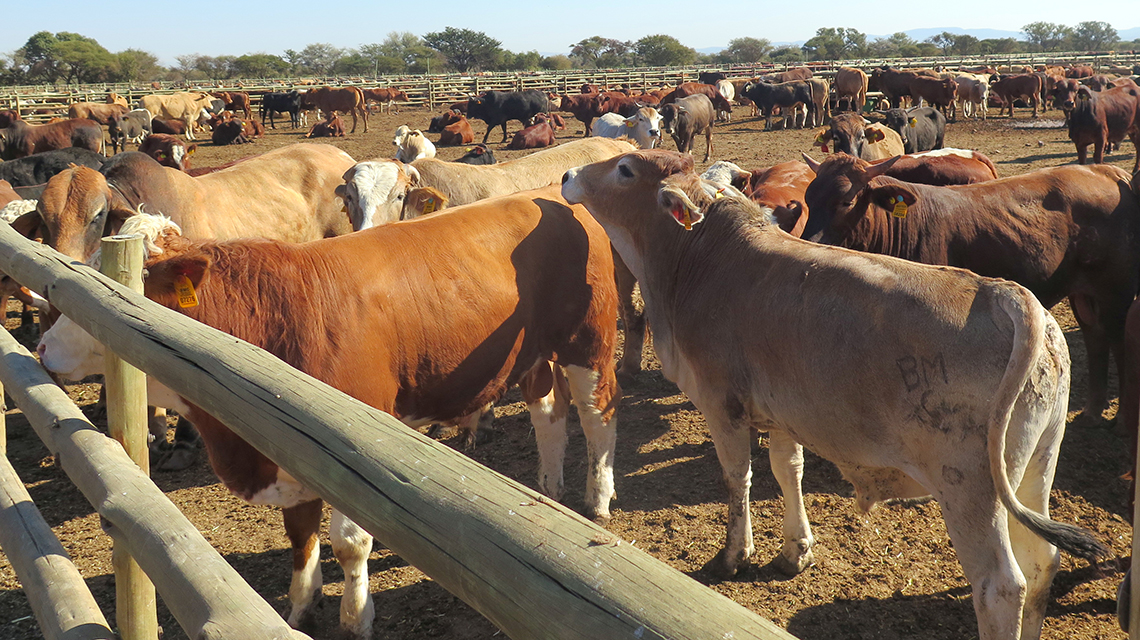It is important to treat livestock diseases immediately that occur during the rainy season, as prolonging such treatment could be detrimental to the animal›s health.
This is the advice given by Swavet Namibia sales representative, Paul van der Merwe to Meatco producers during a recent Meatco Night School class.
The night school is offered by Meatco’s Agriculture Extension and Advisory Services department that aims to continuously provide producers with information and broaden their knowledge relating to cattle farming.
Van der Merwe, who has been with the animal pharmaceutical company for the past six years, discussed the most common diseases after the rainy season, vaccines that are a preventative measure to rear cattle, treatments thereof, types of parasites, the importance of phosphate licks as well as how and with what wounds in cattle should be treated.
He said one of the most common diseases is Lumpy Skin Disease (LSD), a disease spread by blood-sucking insects. LSD causes high fever in animals, and expecting animals can end up aborting or dying of secondary infections.
“There is no cure for LSD, but antibiotics fight secondary infections,” he said.
Van der Merwe urged producers to vaccinate animals against LSD annually around November and December or as early as October, which is usually six weeks before the start of the rainy season.
“Two millilitres per animal is the prescribed dosage and should be injected subcutaneously (under the skin),” he said. He stressed that if an animal is showing clinical signs of the disease, it must be isolated immediately because it is highly infectious and can transmit the disease to other animals.
He further advised them to treat secondary infections with any oxytetracycline and Vitamin B complex used to boost the animals’ immune system.
Another common disease during this season, Van der Merwe said is Bovine Ephemeral Fever, also referred to as three-day Stiff Sickness, caused by an insect-borne virus.
Van der Merwe noted that clinical signs are short fever, shivering, lameness, and muscle stiffness and, on rare occasions, can also lead to death.
” It causes loss of milk production and reproduction difficulties. It is spread by flies, midges and mosquitoes. It can spread in the herd through the saliva of infected animals and nasal discharge,” he said.
“The farmers can only treat the disease with an anti-inflammatory and calcium. To boost the immune system, farmers can use Vitamin B (metabolic) to boost immune systems,” he added.
He said there is only one product available on the market from Onderstepoort (B-Phemeral) and the vaccine is safe for expecting and lactating animals and should be given annually during winter.
According to Van der Merwe, animals can be vaccinated from six months onwards, while follow-ups should be administered four weeks later.
“Dosage should be 2ml per animal, which has a 21-day withdrawal period, and producers need to maintain the cold chain storage between 2-8 degrees for both LSD and the three-day Stiffness Sickness,” he said.



